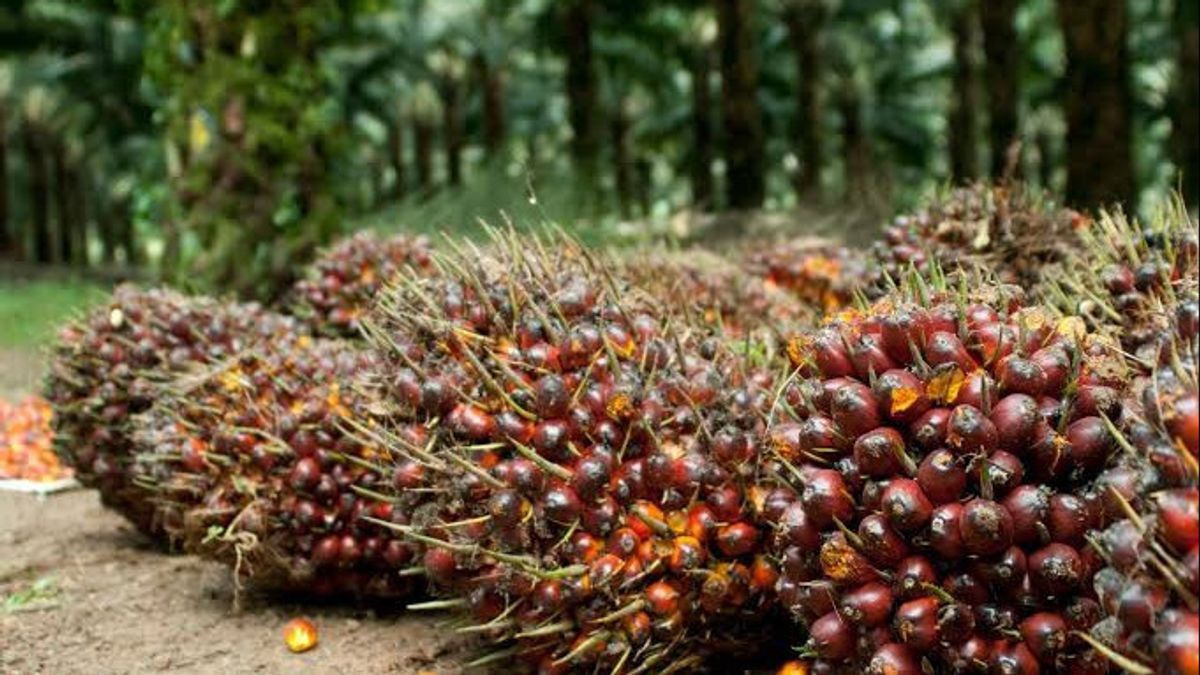JAKARTA - The Association of Indonesian Biofuel Producers (Aprobi) predicts the use of palm oil for biodiesel will increase by 17 percent this year from total palm production. This record is higher than the growth in 2021 which reached 15 percent of the total national palm oil production which reached 48.09 million tons in 2021.
Even so, Aprobi said the supply for food needs, especially cooking oil, was still sufficient. This is because most of the domestic consumption of palm oil is used for food.
APROBI Daily Chairman Paulus Tjakrawan said biodiesel production has experienced rapid growth in the last 16 years. The total installed production capacity reaches 16.6 million kiloliters until 2021. "Entering this year, the use of palm oil for biodiesel is predicted to be 17 percent. Most of the domestic consumption of palm oil is used for food needs, especially cooking oil," he said in a written statement, Thursday. , May 14.
Based on Aprobi data, the distribution of B30 was 8.43 million kiloliters in 2020. The achievements throughout 2021 reached 8.44 million kiloliters. Even though in the last two years, said Paulus, Indonesia was facing a pandemic problem that had an impact on economic and social aspects. In 2022, the allocation for B30 distribution is projected to be 10.15 million Kiloliters.
Because of that, said Paulus, his party also did not agree with the accusations from a number of parties that biodiesel interfered with domestic cooking oil supplies. Based on monthly data from the Indonesian Palm Oil Association (GAPKI) as of April 20, 2022, domestic palm oil stocks from January to February reached 5.04 million tons.
The amount came from initial stock (4.12 million tons) plus CPO/PKO production (8.06 million tons) after deducting local consumption (2.88 million tons) and exports (4.27 million tons). For local consumption, the use of palm oil for food (cooking oil) is 1.56 million tons and the use for biodiesel is 2.1 million tons.
"Biodiesel does not interfere with the use of palm oil for cooking oil. In 2022, the total national palm oil production will reach 52 million tons. Meanwhile, palm oil needs for biodiesel are 8.4 million tons. This means that the supply of palm oil is sufficient for food and energy," asserted Paul.
Paulus said that biodiesel is part of accelerating the national energy transition program. The development of palm-based energy continues to work like bio-hydrocarbons. From the development of biohydrocarbons, it can produce gasoline and palm-based airplane fuel.
From the environmental aspect, the contribution of the use of B30 can reduce greenhouse gas emissions by 22.59 million tons of CO2 throughout 2021. The B30 program is very effective for national priority needs to reduce emissions while reducing dependence on fossil energy, especially in the transportation sector.
"The use of biodiesel also saves the country's foreign exchange. Paulus said the B30 program reduced state spending by 3.8 billion US dollars from imported diesel. Indonesia has gradually reduced diesel imports since the bioenergy or biodiesel program has been running until now B30," he said.
Mandatory biodiesel is also effective in increasing the uptake of domestic palm oil when demand weakens in the global market. Paulus said the use of biodiesel helps improve the welfare of farmers after there is a balance between domestic consumption and exports.
In addition, said Paulus, the positive impact is the stability of the price of Fresh Fruit Bunches (FFB) for oil palm farmers in the country. Even from last year until last March, the average FFB price for farmers was above IDR 3,000 per kilogram.
"It is not true to say that biodiesel benefits corporations. In the field, this program also supports the increase in the price of palm fruit for farmers," he said.
Paulus is optimistic that the biodiesel program will be on a positive path this year with the government's strong commitment and support from industry stakeholders. The government's commitment can be seen from the B40 test program which is still running this year.
"Indonesia has occupied a position as the largest consumer of biodiesel. The contribution of biodiesel also provides real benefits for this nation. This opportunity should not be wasted because biodiesel is part of energy sovereignty," he said.
The English, Chinese, Japanese, Arabic, and French versions are automatically generated by the AI. So there may still be inaccuracies in translating, please always see Indonesian as our main language. (system supported by DigitalSiber.id)













